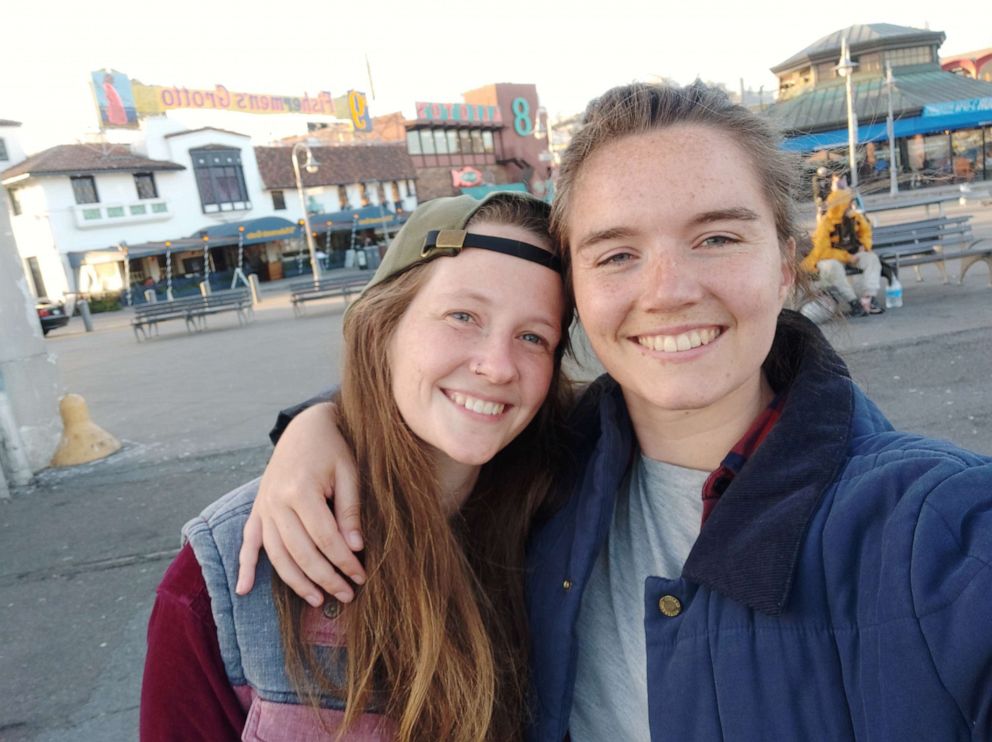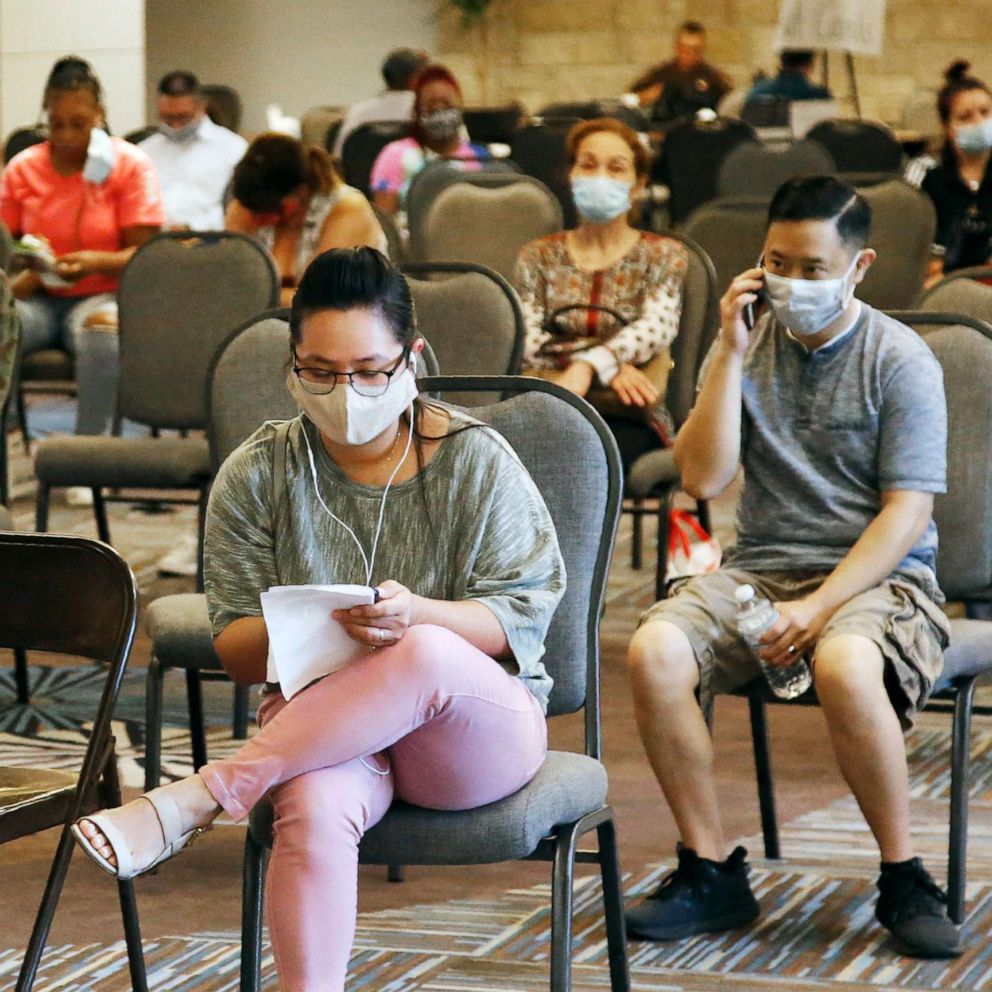Bi-national couples separated by COVID-19 travel bans do what it takes for love
Thousands of bi-national families are taking to social media to push for action.
New mother Corsi Crumpler imagined the moment she would give birth to her first child very differently.
Instead of having her fiance Sean Donovan by her side, when the time came, she raced to a Texas hospital alone.
“Sean is ... in Ireland right now and he’s been staying up with me… I’m so nervous. I’m so nervous,” said Crumpler in a video diary, shaking while in labor.
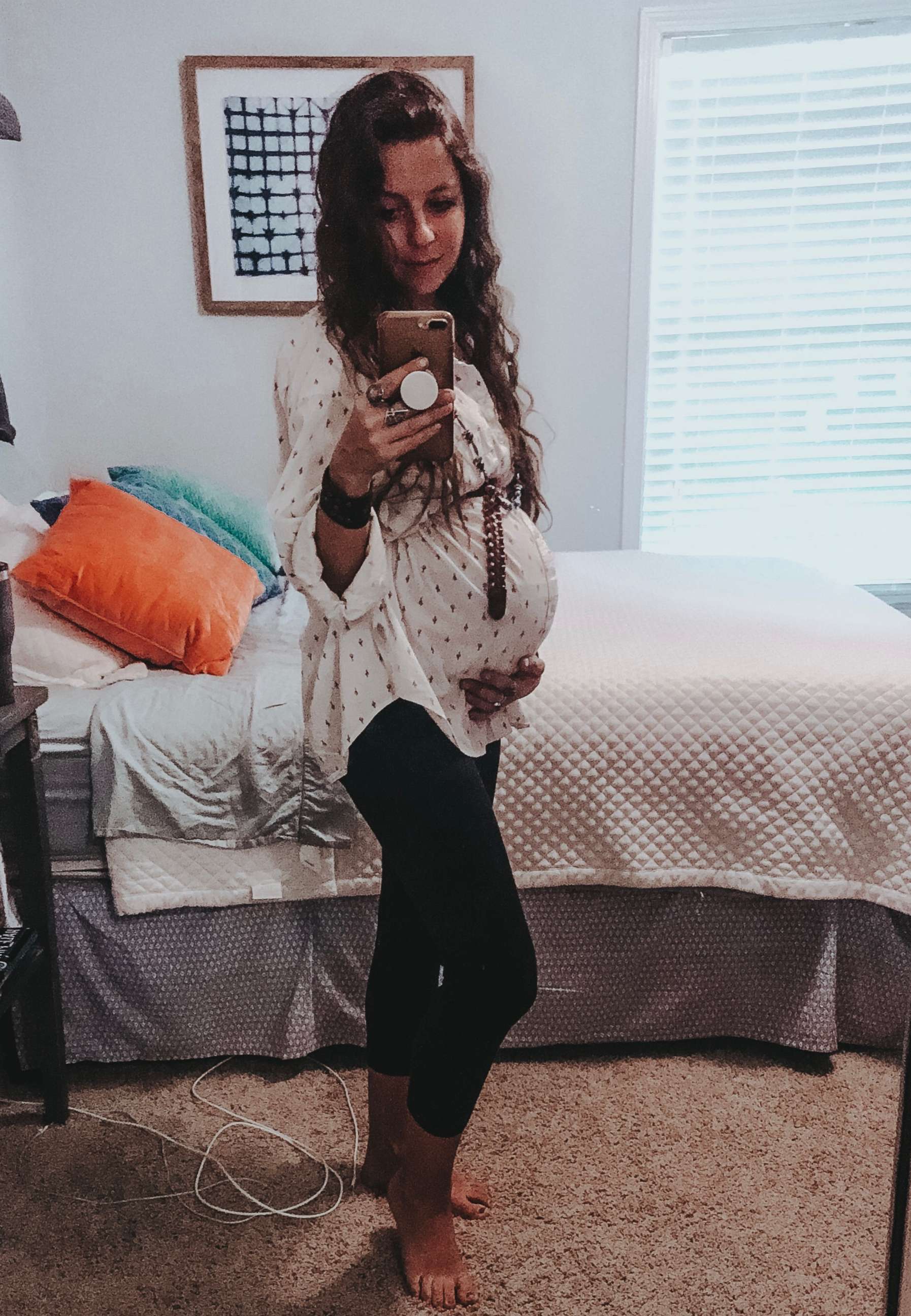
Donovan, an Irish national, was trapped thousands of miles away in his home country -- banned from traveling to the United States due to COVID-19 restrictions. Crumpler and Donovan had been separated for months leaving her alone nearly all of her pregnancy at their home in Wichita Falls, Texas.
“We were in Texas together, but [Donovan] had to go back home to Ireland for a bit - we had no idea he wouldn’t be able to come back,” said Crumpler.
“I miss him very much and I know that, you know, he’s going to be such a good dad because he’s such a good partner. He always doted on the fact that he would have loved to take care of me during this time and I just feel like he’s missing out on so much,” she added about her pregnancy.
Donovan has filed for a K1 Visa application, known as a “fiance visa,” but has been left at a standstill since processing has been put on hold during the pandemic. Even approved fiance visa holders from restricted countries like Ireland are not exempt from the ban on directly entering the U.S. However, Crumpler says she should have been married by now under normal circumstances. Individuals married to U.S. citizens are exempt from the travel restrictions.
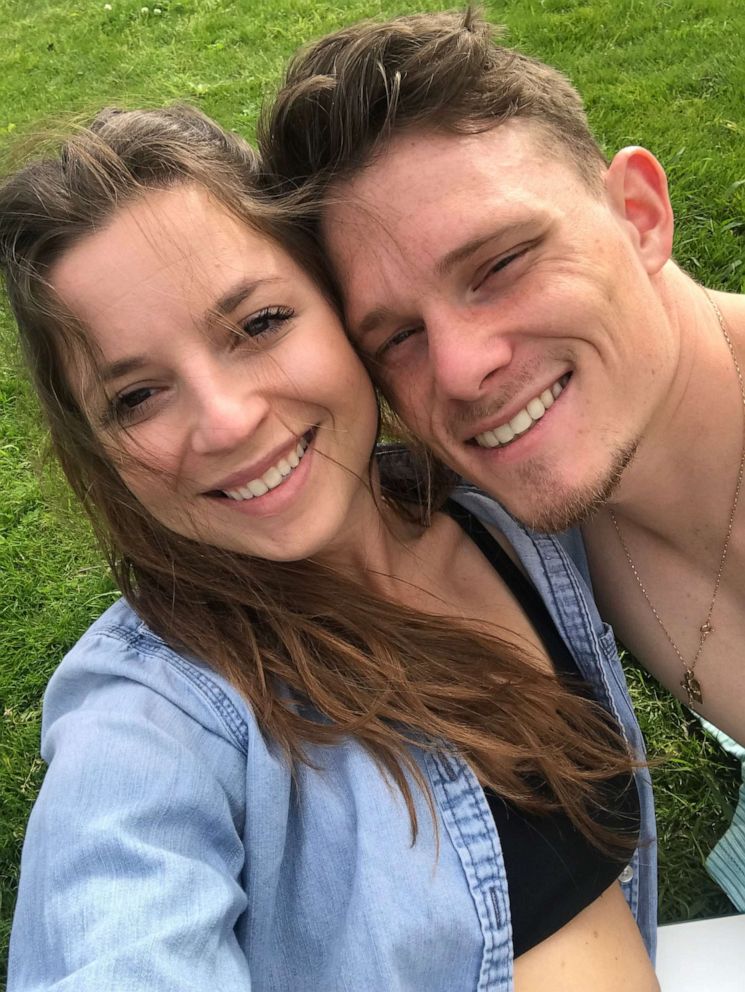
As coronavirus swept the globe, governments from around the world have invoked similar travel bans, which have separated bi-national families and couples - leaving them in limbo.
The E.U. initially implemented travel restrictions on most foreigners entering Europe on March 17. Those restrictions were extended until July 1, when the E.U. began allowing travelers from a list of 14 countries approved by its leaders. Although the list is updated every two weeks, the E.U. plans to continue bar U.S. travelers from entering the E.U., according to the updated July 16 edition by The European Council.
“I just don’t think people understand just how hard it can be to do it alone,” said Crumpler.
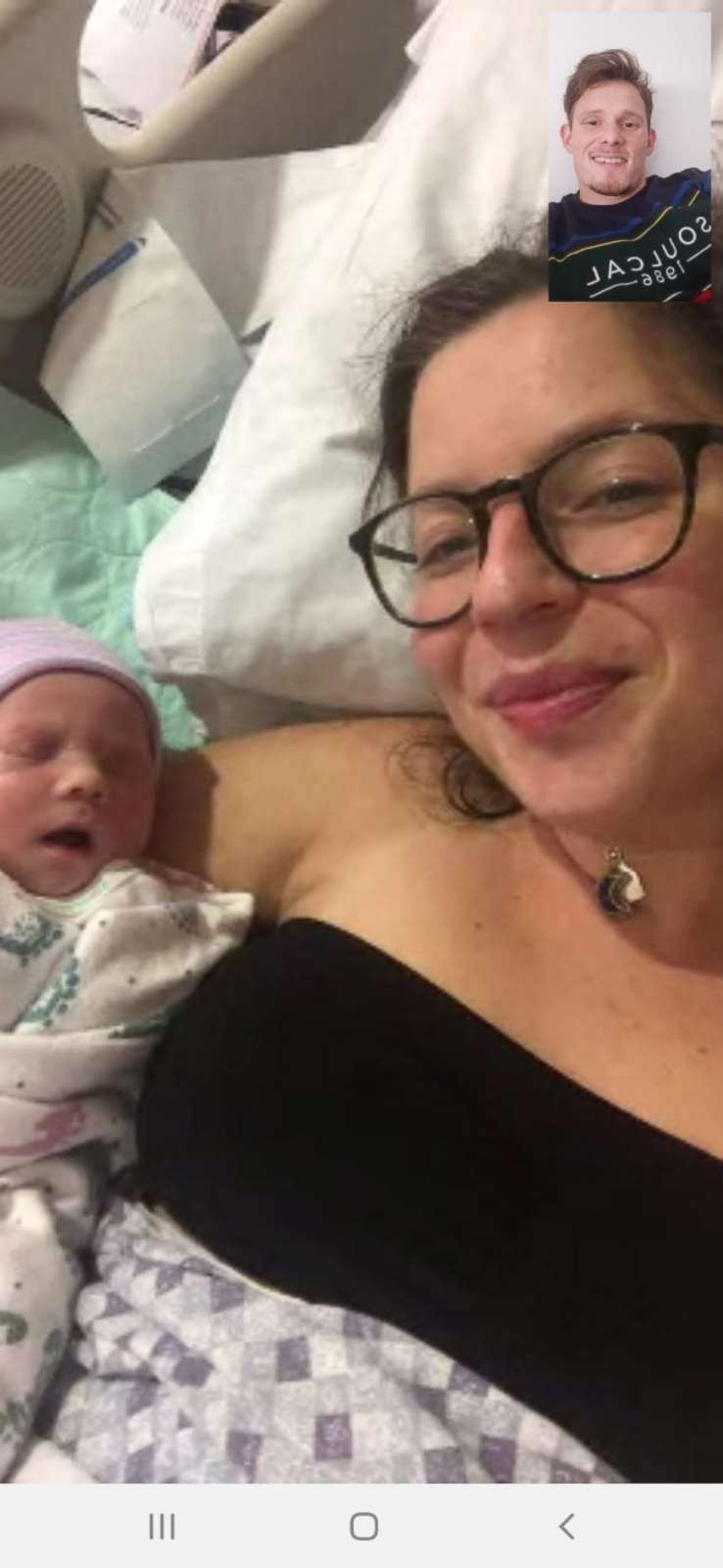
A Kaiser Family Foundation poll shows nearly half of Americans report COVID-19 is harming their mental health. The CDC even issues guidance on coping with stress during the pandemic.
The U.S. does allow for some exemptions to the travel ban, including parents, but Donovan said he did not technically qualify until his child was born.
So, on July 22, Donovan watched Crumpler deliver their son over FaceTime.
“It’s like 3:20 in the morning- he’s six hours ahead of me but he’s so supportive and so is his family on FaceTime... Oh my gosh, the phone is shaking because I can’t stop [shaking]. I’m so nervous,” said Crumpler, who labored for a grueling 24 hours before the doctors decided to make an emergency C-section.
“It was the scariest, most painful thing I have ever done and that's not a question," she added. "Once I heard the baby cry, it was kind of like lights out...I didn't get to hold him right away."
When Crumpler woke up, she was able to meet her son, Taos, who is a healthy, happy and sleepy baby. Now, officially a father, Donovan was finally allowed to travel to the U.S. to meet his baby for the first time.
Due to the ESTA, Donovan is only allowed to stay in the U.S. until October and then will have to go back to Ireland -- until they can officially get a Visa.
“We are going to take as much time as we can - I’ll stay until the fall,” said Donovan. “We have a platform and we need to speak out for so many others [separated by COVID-19 travel bans].”
While thousands of separated couples are desperately awaiting reunions inside the U.S. some are meeting up on borders and shared territory. Others are embarking on more extreme journeys - flying to places like Croatia, to meet up in a country where both are allowed to enter.
With much of the world still shuttered, Croatia has emerged as a tourist destination, welcoming visitors if they can prove a negative COVID-19 test. Separated couples are using this small European country as a safe haven.
“I think they're realizing that a lot of people aren't traveling to gallivant. We're not traveling to gallivant right now. We're just traveling because this is the only way we can see each other right now,” said Kate McCulley, a U.S. citizen who traveled to Croatia to meet her boyfriend, Charles Neville.
Charles is a resident of the Czech Republic and the pair plans to live there together, but for now that’s put on hold.
“I thought maybe [it] won’t be that long. And I’m sure it’ll work out. But, you know, there was really - it was looking like there was very little hope,” Neville told ABC News’ Maggie Rulli.
Like Neville and McCulley, other bi-national couples have spent the last week quarantining in Croatia spending precious time together. Joshua Shaquille Johnson from Philadelphia and Noemi Jugovac from Slovenia were planning on getting married when the pandemic hit. Now still determined to walk down the aisle, they booked their flight to Croatia.
“It was really important to us not to put anyone in danger so we decided to have a small wedding. Later on when the pandemic will be over, we will do a big one with all friends and family,” said Jugovac who added that the only guests were the bride’s parents and the best man.
“I just, I hope to take the next step forward with her... and, you know, be able to help other people who are trying to go through the same process we are, because I want them to be with their loved ones - and without, you know, their loved ones what’s the point. This pandemic is just getting in the way,” said Johnson.
Now, countries are starting to hear bi-national couples’ concerns. On July 27, the Netherlands joined the growing list of countries welcoming partners that can prove they are in a long term relationship with a Dutch citizen.
Hannah Sabrina of New Jersey prepared a five pound binder to verify her relationship with Dutch partner Chris.
“It took me about two and a half weeks to construct it … and it is essentially a documentary on what my relationship looks like from start to finish,” said Sabrina. “So the front cover has the dates traveling, where I'm traveling to and the purpose of this binder... Next is receipts from the time I was there.”
Sabrina boarded a plane the very first day the exemption went into effect after spending 11 months away from Chris.
“It's pretty stressful not knowing for certain if I'm going to see Hannah tomorrow morning. I can't wait to see her. But definitely feeling it right now,” said Chris the night before Sabrina’s arrival.
With months of preparation, Sabrina was able to travel safely through J.F.K airport in New York City, U.S. and Dutch customs, and finally was able to touch down in the Netherlands.
“Eleven months apart and we made it,” said Sabrina, waving and pointing to Chris.
“It's kind of a blow to all the people who are not married because their relationships are basically being classified as less than -- their love for one another is being classified as Tourism,” she continued, calling on all governments to do better. “I think the terms for essential travel should be expanded because there are a lot of heartbreaking stories of people who definitely should be able to, like, make a plea for their travel being essential.”
Thousands of bi-national couples and families with similar stories are taking to social media to push for action with campaigns like, #loveisnottourism and #loveisessential. They call to make the case that they are not tourists wanting to sightsee, but instead loved ones who want to be with each other - no matter what it takes.
Facebook groups have become a safe space for lovers around the world to offer support and guidance as they navigate new roadblocks to their long distance relationships.
Emilie Bernier O’Donnell is from Paris and her girlfriend Amelia Franklin lives in San Francisco. Before COVID-19, the couple tried to see each other every three weeks. But for six long months, the couple was forced to connect virtually.
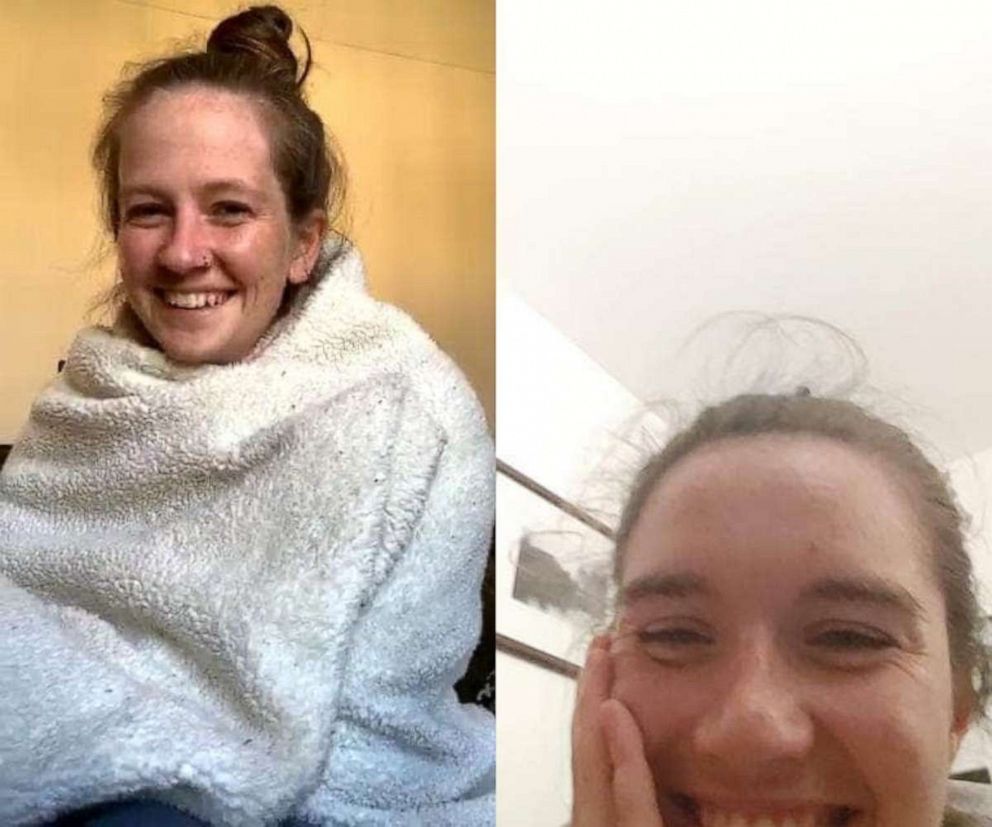
“We kept thinking that, ‘Okay maybe in April there will be some new precautions? Maybe in May?’ And a month would come and go and we would still wait, checking the news everyday just to see if either of us would be able to travel,” said Franklin.
The young couple grew tired of waiting. O’Donnell had learned from a Facebook group about other people successfully traveling to Mexico before heading to the U.S.
So she decided to embark on a long, round-about journey through Mexico to meet Franklin in California.
“I’m meeting [up at the airport] with a group of women from the Facebook couples group that were separated from travel bans. We created a big group chat because we're all taking the same flight to Cancun,” said Emilie.
After making it successfully to Mexico, O’Donnell will spend 15 days there before she can even attempt to fly to California to meet Franklin. The March 11th presidential proclamation suspends “entry into the United States of aliens who were physically present in any of the 26 countries that make up the Schengen Area within the 14 days preceding their entry or attempted entry into the United States.”
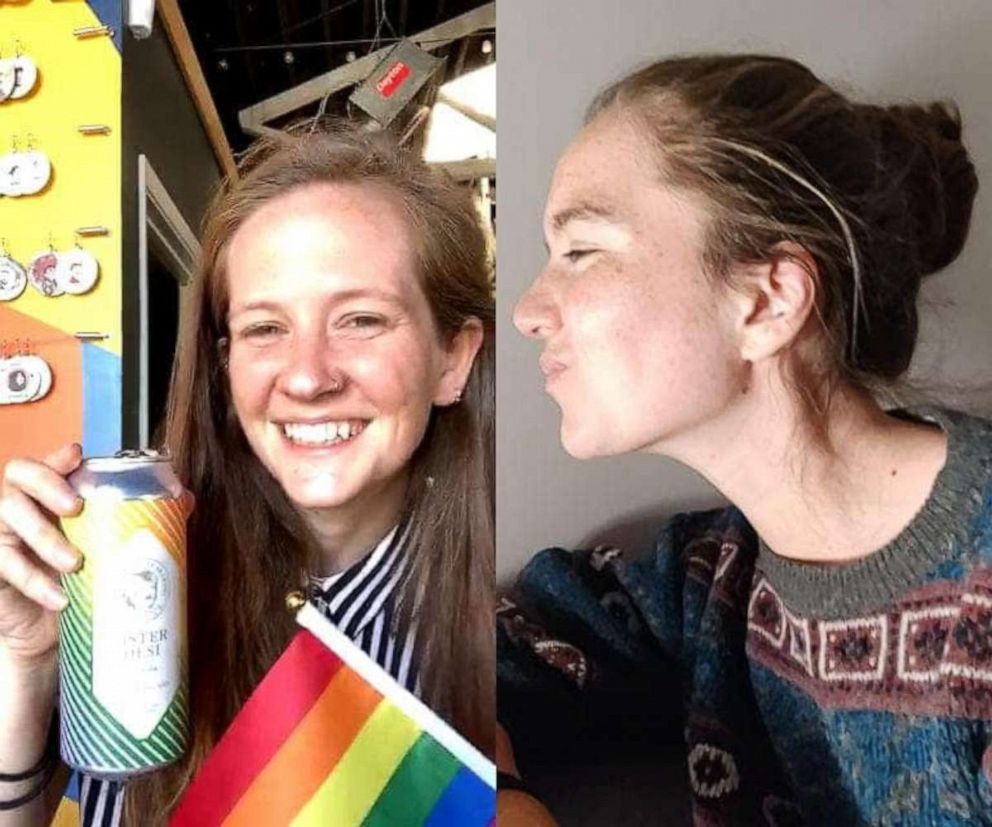
According to the U.S. Embassy in Mexico, the U.S. has temporarily limited inbound land border crossings from Canada and Mexico to “essential travel” until August 20. However, flying is permitted. This action does not prevent U.S. citizens from returning home.
After two weeks in Mexico, O’Donnell was finally able to successfully meet Franklin in San Francisco.
While O’Donnell understands the importance of travel restrictions during a pandemic, she wishes there was an easier and safer way to reunite with loved ones. She thinks the travel bans end up putting people who travel at even higher risk and need to be revised.
“I can see how people... might think that we are being pretty irresponsible in the time of a pandemic and I don't disagree with that,” O’Donnell said. “It's risky, but when you don't know when you're going to see your partner next, when you haven't seen them in six months, and all you've seen is the bottom of their chin from a Facetime... I think you'd be ready to do a lot of things you wouldn't do otherwise.”
